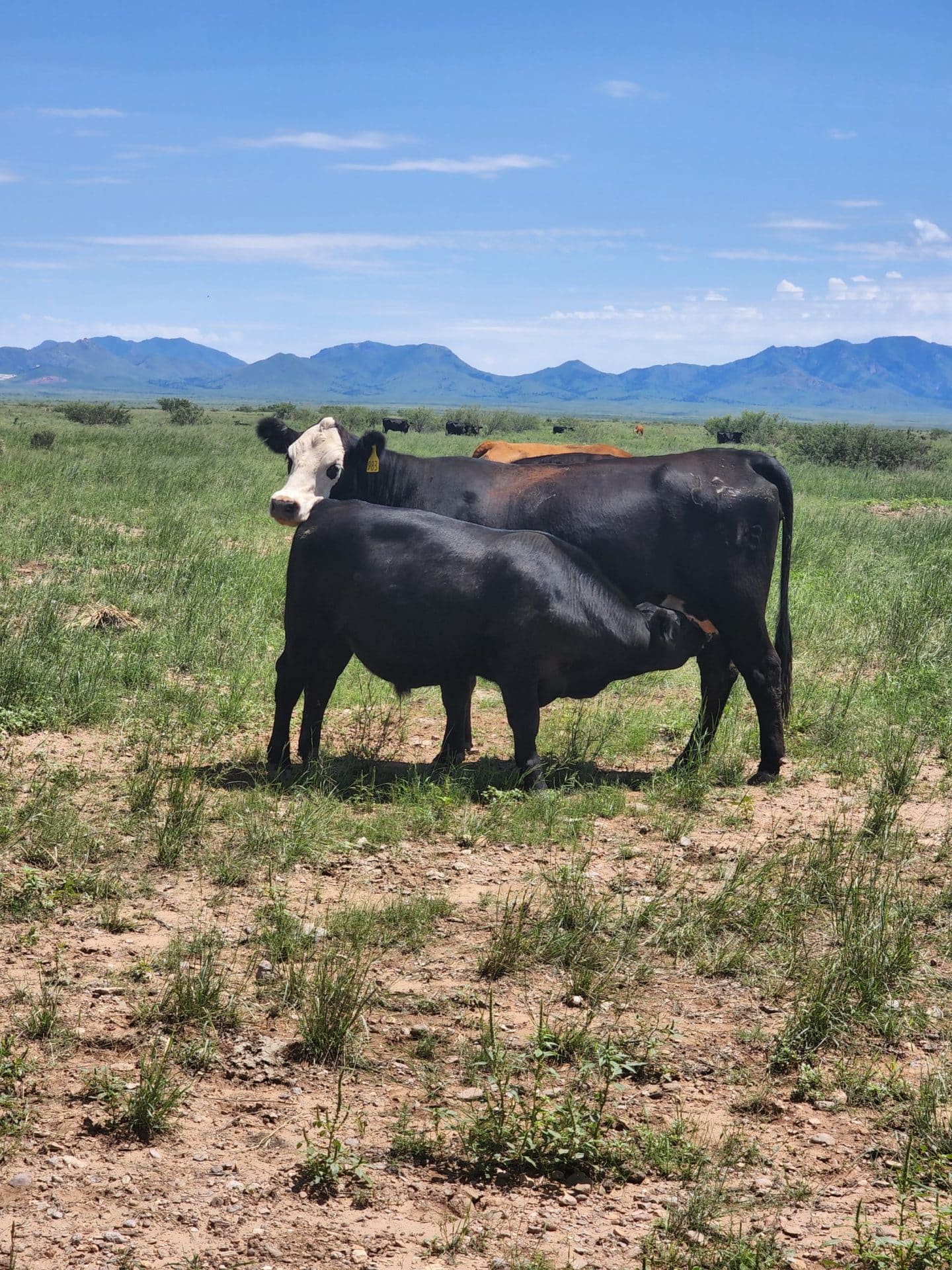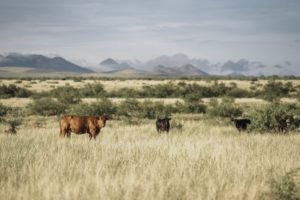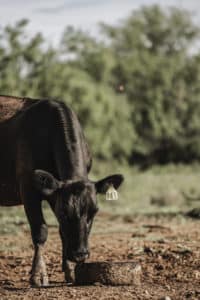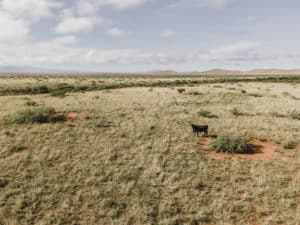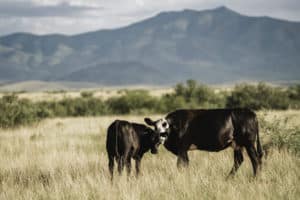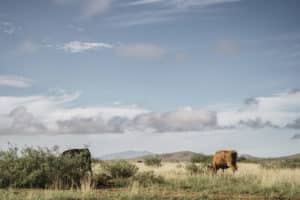pasture management & water distribution: a tide that raises all ships
Here’s how Cienega Ranch uses water management and supplementation to produce Prime beef.
Meet Carter Williams
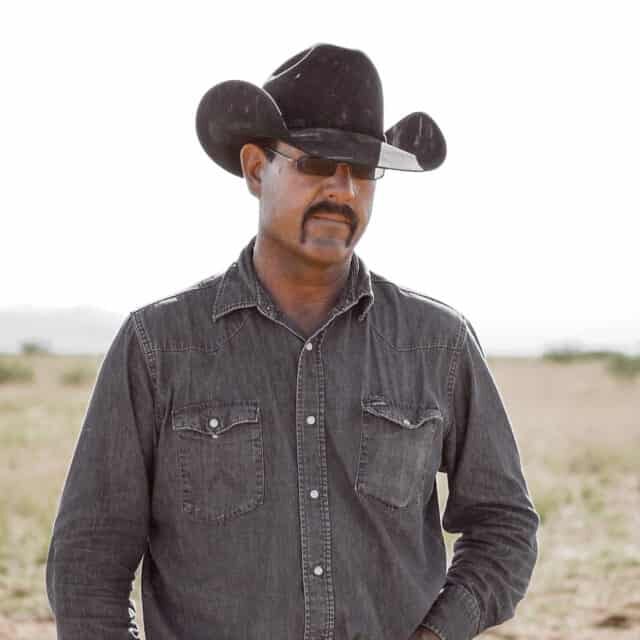
Willcox, Arizona
The desert of southeast Arizona can be a tough place to run a ranch. Pastures are big and sometimes rough and rocky and cows have to hustle and rustle to make a living. Mesquite and other brush can dominate the landscape. Running cows in country like this means you have to work with the land, even when the land doesn’t want to work with you.
When the land doesn’t want to work with you is when good pasture management and the right kind of supplement can make the difference between weaning a good calf crop or not. That’s what Carter Williams, manager of the Cienega Ranch near Wilcox, Arizona, has learned.
“Cienega” translates to a seep, spring, or small water hole in the desert. And in a desert environment, water is the foundation of all life.
The original ranch is more than 100 years old and spread across a huge chunk of the state. Over time, the size diminished and the previous owners ran just a small portion of the original outfit. As the family retired, the present owner bought the land and set about rebuilding the ranch, Williams said. A big part of that rebuilding process, in addition to acquiring some of the ranchland that was part of the original operation, is pasture improvement.
Williams and his crew are accomplishing that by drilling wells and running miles upon miles of pipeline to provide water in parts of pastures where none was available before. And they’re building dams in the draws and arroyos that run from the mountain country into the flats.
The Cienega Ranch is high, about 4,600 feet above sea level, and runs from love grass flats to rough mountain pastures. Surprisingly, it has a 22-inch annual rainfall, thanks to the Monsoon season that runs from mid-July through September.
Damming the draws not only provides surface water for the cattle during the dry winter months, but keeps more water on the land, Williams says, instead of letting it run off and cause erosion. So the entire ecosystem—wildlife, plants, everything—benefits from the water conservation efforts on the Cienega Ranch.
The ranch is home to around 900 cows that roam more than 60,000 acres.
When Williams took over ranch management the first year, the calves were already on the ground. “It was a 50 percent calf crop; no tubs, no supplement whatsoever,” he said.
So Williams and his crew went to work. “The last three years I’ve been here I went from 80 percent to dang near 92 percent calf crop.” Putting numbers to that statement, he said they branded 125 more calves in 2022 than the year before. And in 2021, they branded 50 more calves than in 2020.
He attributes that largely to having Riomax® tubs in front of the cows year around. “A lot of it is because these cows are staying in such good shape, especially through the winter and spring when it’s dry here,” he said. “June is one of the driest months down here in this country. If you can get through June and hit the summer rain, you’re doing pretty good. But a lot of it’s because these tubs get them through the deal so their body scores are staying good and they’re cycling back when the bulls are hitting them.”
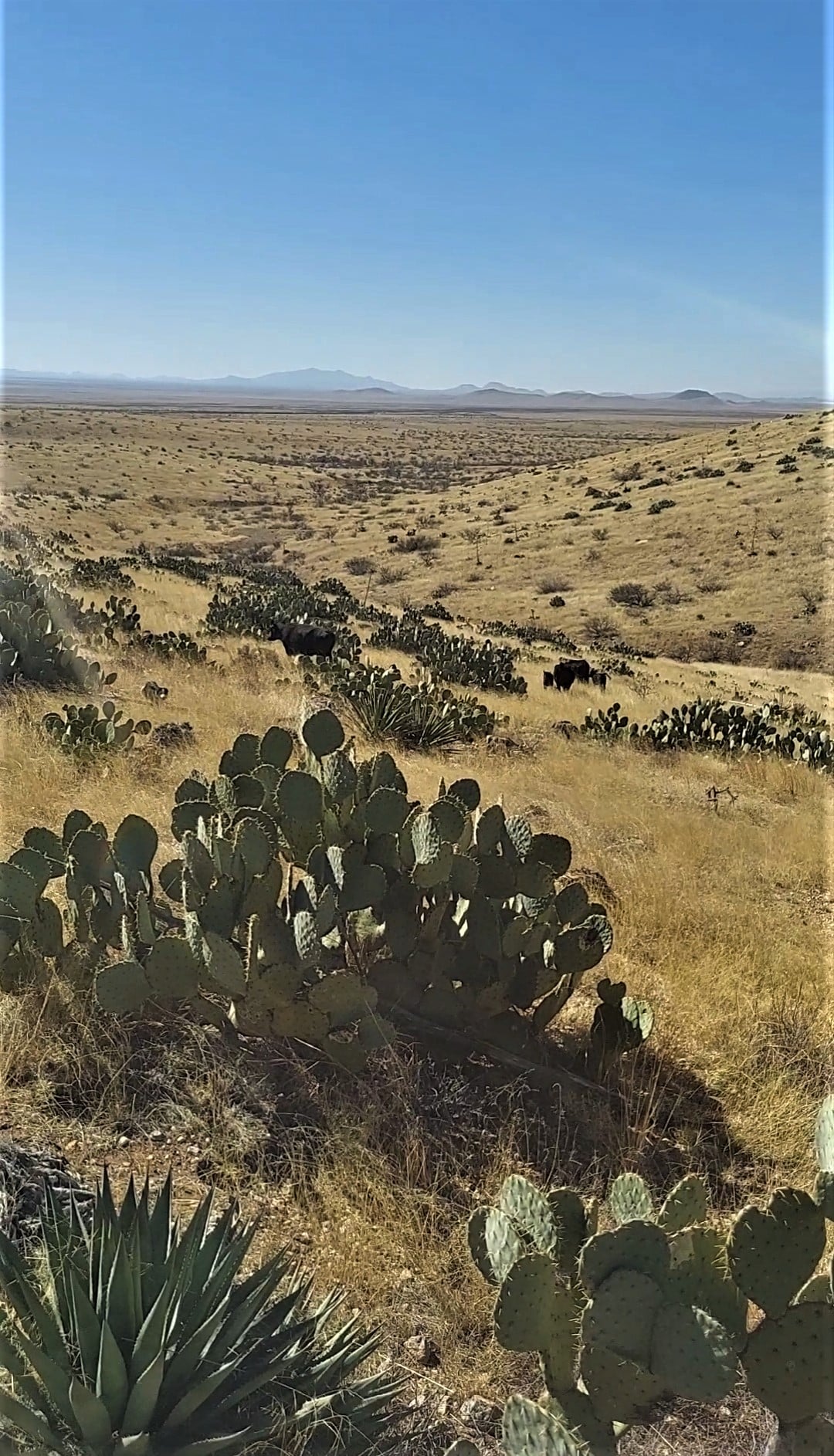
The cow herd is Angus based, with a few Red Angus and black baldies sprinkled in. On the bull side, all the genetics are from Gardiner Angus in Ashland, Kansas, which Williams says has improved their performance.
The ranch retains ownership of some of the steers. For the past several years, Williams says the steers have consistently graded 90-95 percent Prime, which affords a lot of opportunities to enhance their take-home pay by marketing through several value-added channels.
Breeding season begins in March, just as the country is entering its driest time of the year. If cows aren’t in good body condition coming out of the winter, conception rates will be dismal, as they were when Williams took over running the ranch. Now, cows go into breeding season at a 6 or 7 body condition score, ideal for cows on the range.
In fact, it was dry weather that caused Williams to start on Riomax®. Not too long ago, the land suffered through several years where it received only 8 inches a year. Williams knew he had to do something, and Riomax® was the answer.
Because Riomax® helps the rumen digest feed more efficiently, cows can stay on pastures longer than typically happens. That helped Williams and the cattle get through a very dry 2021. “I had to use some pastures (longer) to save other pastures to go back to if I had to. And the tubs really helped the cows out. None of them really got poor,” he said.
Calf health shines as brightly as the hair coats.
“I really haven’t had to doctor any calves,” he said. “When the steer calves hit the grow yard where we ship them to, they were really impressed with those calves. Very little sickness they had to fight with. And the calves didn’t bawl.”

He shares a similar story about the replacement heifers. They are born to cows that have been on Riomax® year around and “a lot of times their calves are outweighing the main herd cows and our heifers aren’t dropping off.” They stay healthy and rebreed with a 90-95 percent conception rate, he says.
What’s more, neighbors are starting to notice. “I’ve had some neighbors drive through here with me and look at these cows. [They ranch on] similar country and can’t believe our cows are in way better shape than their cows. And it’s the same grass, just across the fence, basically.”
Typical weaning weights in that country are 450 to 500 pounds. “And people are happy with it. The last three years we’ve had them on the tubs, we’re weaning 600, 650-pound calves off these cows. And the cows aren’t jerked down. So I think the tubs have really helped us out a lot.”
That’s particularly true with his older cows. “I’ve got a few old cows I need to cull. Their teeth are short but their bellies are full and they’re staying in really good shape and raising nice calves; their calves are just as big as the rest of them.”
Williams admits the Riomax® tubs are costly upfront. “But the end result is where it’s at. It brings it back to you in the long run. I think they pay for themselves. You might even make a little on the deal.”
